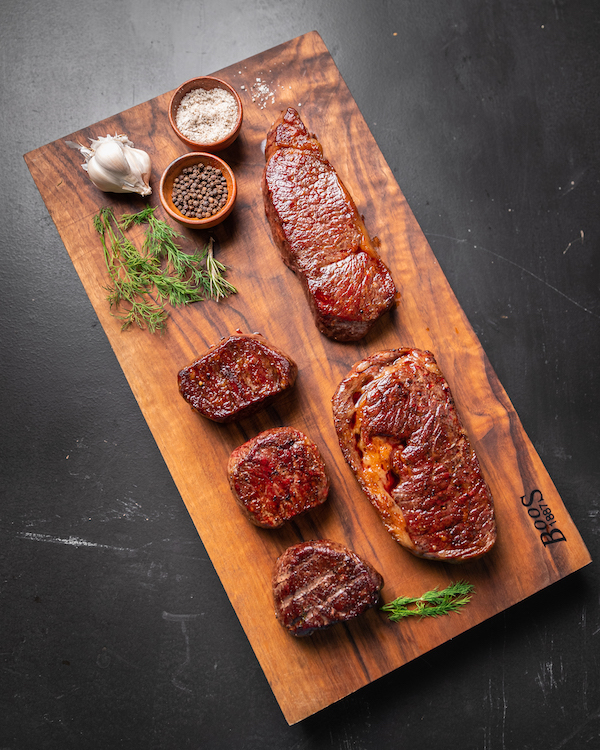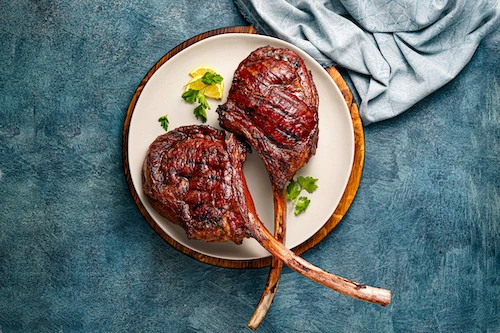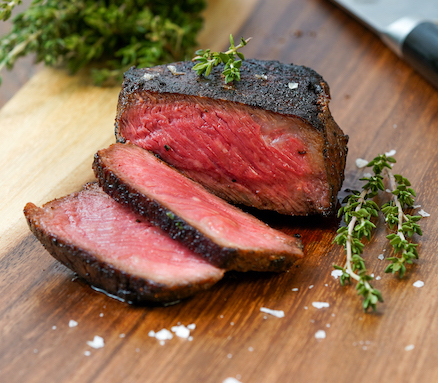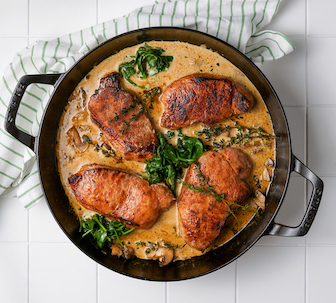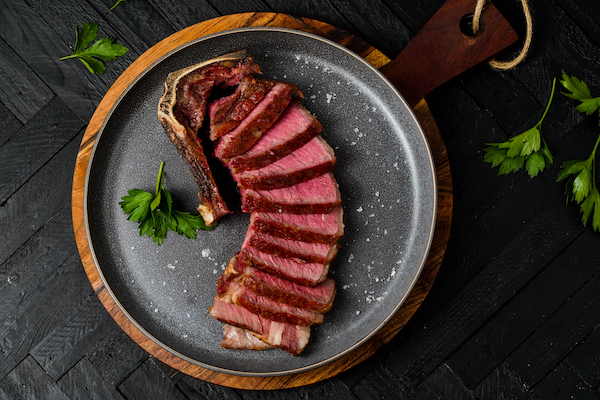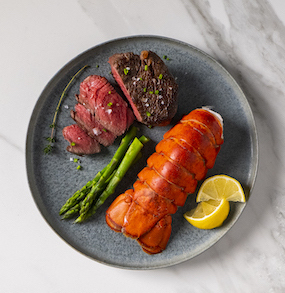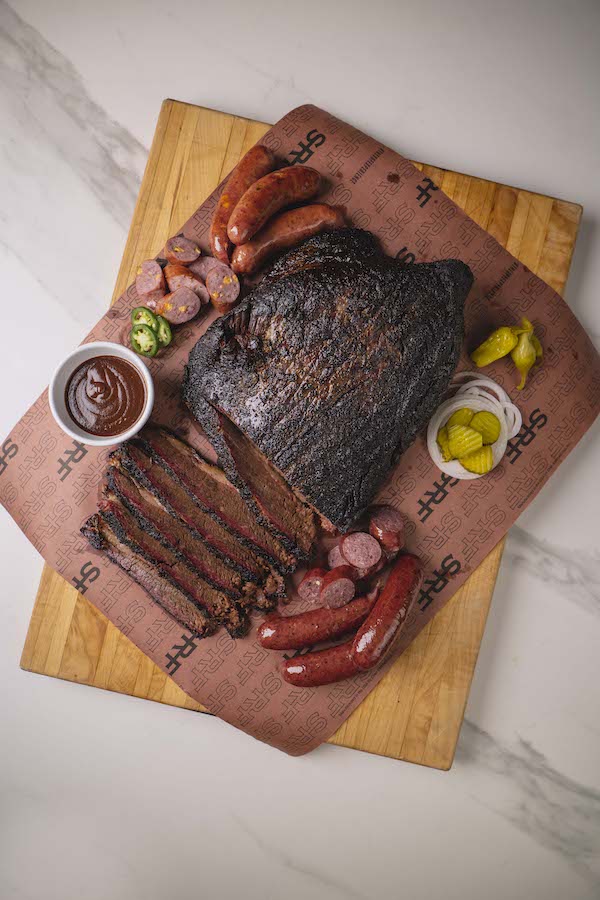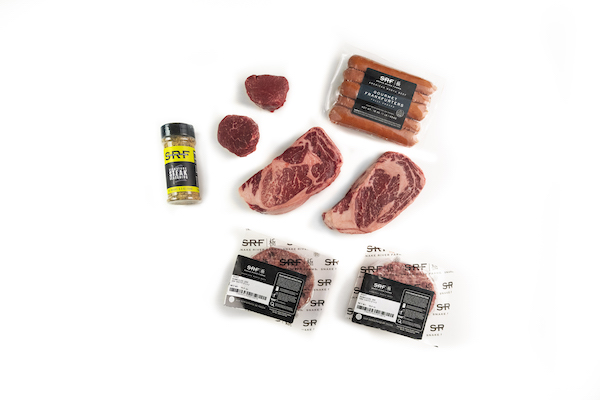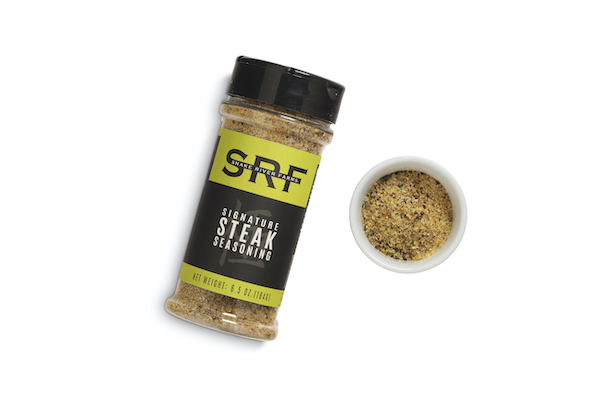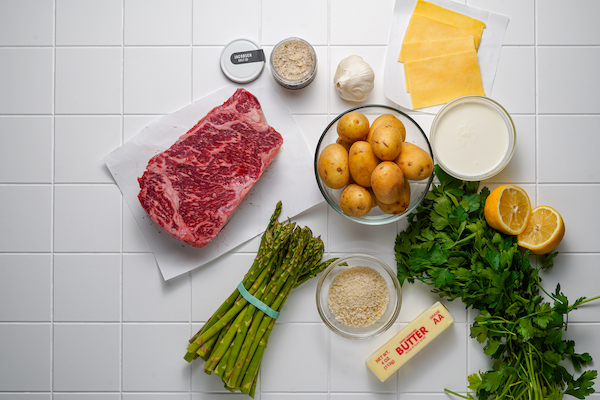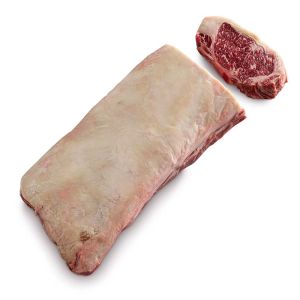Save on Strip Steaks: How to Cut a Striploin into New York Strip Steaks
The striploin is a large cut of beef that comes from the loin primal. It's a beautifully marbled piece that produces flavorful and juicy steaks. New York strips are a premium priced steak that is in high demand, so cutting them yourself from an American Wagyu striploin is an excellent way to serve superior steaks at a reduced cost.

Look Sharp
A sharp knife is just about all you’ll need for this striploin to steak conversion project. Use a longer knife. An 8" blade is good, but I used a 10” knife in these photos. The longer length makes a cleaner cut with minimal blade strokes. It sounds obvious, but a sharp knife makes the job much easier and safer.
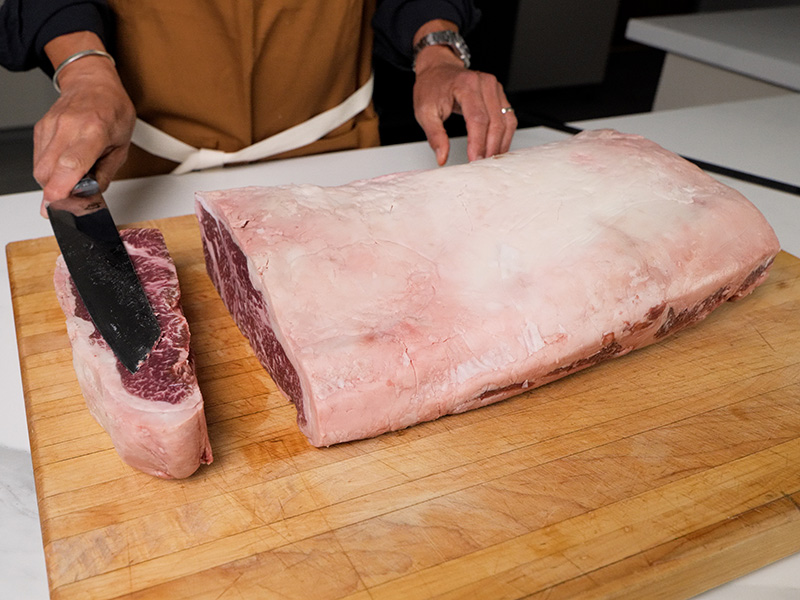
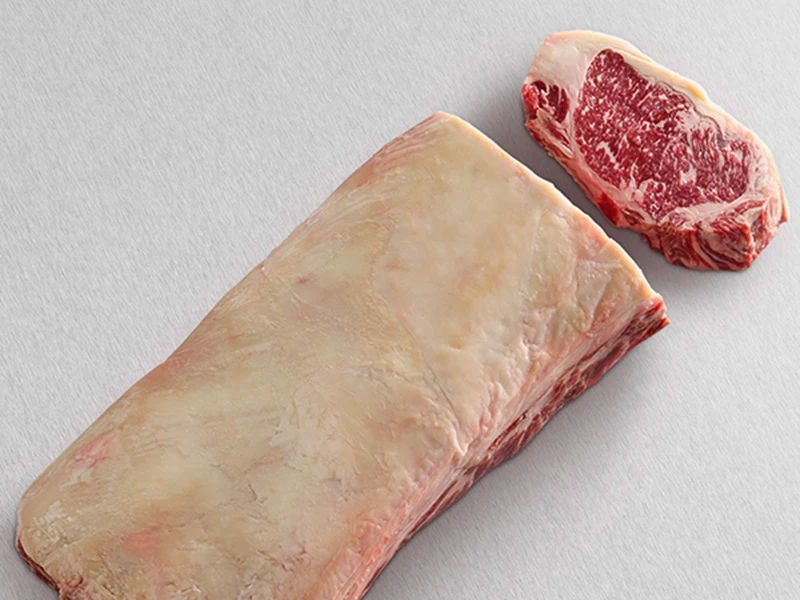
Thaw Out
We ship our American Wagyu striploin frozen. The average weight of this substantial cut is about 14 pounds, so plan to let it thaw for 3 to 4 days. Pro tip – cutting the striploin while it is still slightly frozen makes the job easier.
Cut Now, Trim Later
Skilled butchers often trim the fat and connective tissue from the entire striploin, then cut it into steaks. An easier, but slightly more time-consuming method, is to cut the steaks then trim each one individually.


Fair and Square
The striploin is a natural product, so there it varies in shape and is not a perfect rectangle. Our goal is to produce steaks that are evenly sized, so cut a thin piece off the end to square off it up. The piece that remains isn’t a full steak, but it is a nice piece of beef so save it to use for sandwiches or a delicious minute steak to go with your eggs for breakfast.
Lay it on Thick
One advantage of cutting your own New York strips is the ability to produce a generous thick steak. One and three quarters (1 ¾) is a really nice thickness that will still yield a good number of steaks. You can eyeball the thickness, but it’s OK to use a ruler for the first steak. Once it’s cut, you can use it as a measuring stick for all the additional steaks. Even sized steaks not only look great, but that also ensure a more even cook when you place them on the grill or in the skillet.


A Stroke of Work
When it’s time to cut the steak, use an even stroke in one direction. Don’t saw it back and forth. This provides a consistent, smooth face on the steak.
I’ve found it’s easiest to cut toward yourself. Be mindful of the hand holding the striploin and make sure it is out of the way before you start. If the first stroke doesn’t quite cut the steak completely, follow up with a second pass in the same direction.
Repeat this step until you’ve cut the entire striploin into steaks. For the final two steaks, I like to cut the piece in two. You may also want to square off the final steak, similar to what we did with the first one.
Trim Down
The final step is to clean up each steak. They are generally thicker one one side and thinner on the other. Start by trimming off the clear connective tissue that’s located on the thick side.


Next, trim off the tail fat on the thinner end.
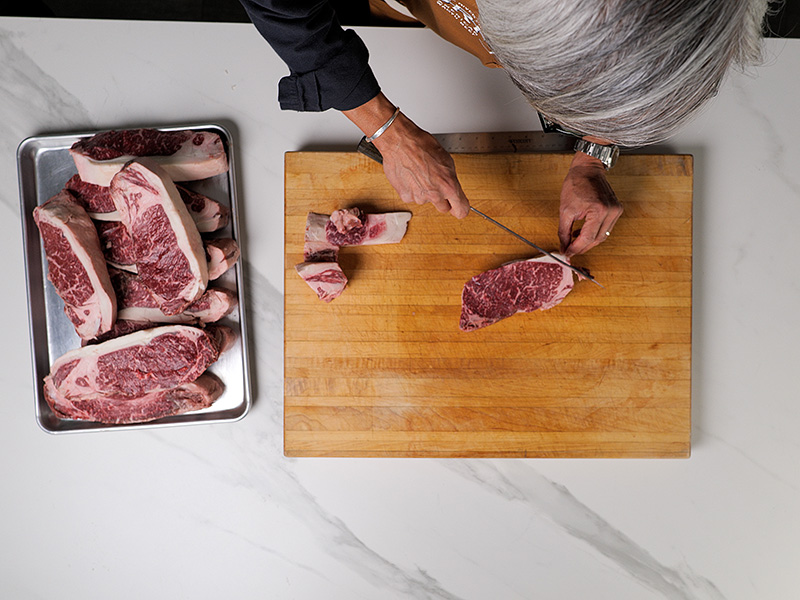
To make your steak look meat counter-worthy, you can trim a small amount of the remaining fat so it tapers nicely.

Repeat this for all of your steaks.
There you have it. A striploin is now 10 beautiful New York strip steaks
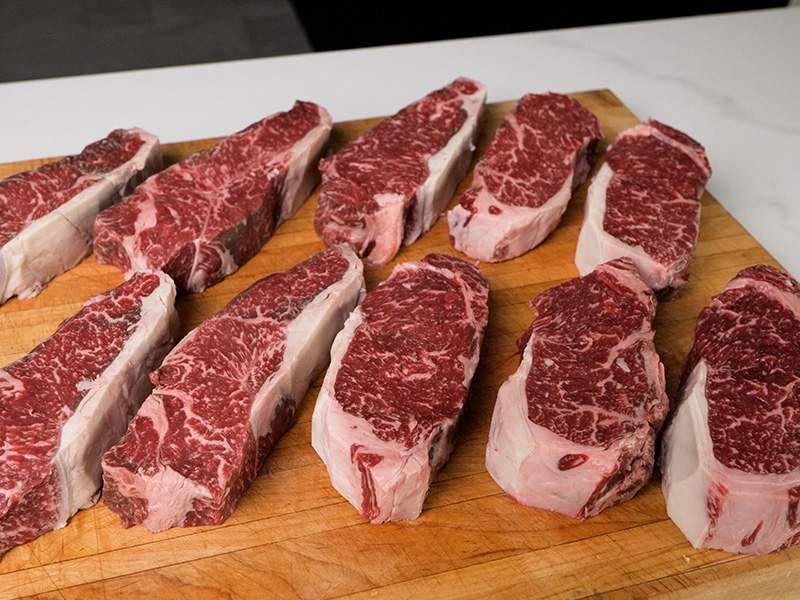
When you’re finished, you can cook them immediately. If you’d like to use them later, individually wrap them in plastic freezer bags or a vacuum food sealer.

